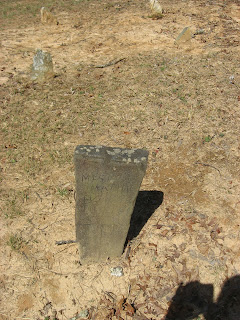At the first whisper of cool air in the fall, my husband asks me for Pepper Pot Soup. I began fixing this soup years ago with my ancient J
oy of Cooking, pictured above. Look at the stains and splats of lord knows what on its pages. It no longer has covers. This was a wedding gift from Newt and June Smith, colleagues and friends who live in Tuckasegee, a few miles down the road from us.
Naturally you need peppers. I use several of them, along with onion, and strips of bacon sliced into small lengths. I saute these around in my iron "spider" as my grandmother called it, until they look ready to have stock added to them. This time I used a blend of chicken and vegetable stock that had in my freezer. I try to avoid store-bought stock, with its high sodium content and goodness knows what else in it.

My husband likes this soup HOT, so I add whatever comes to hand, most recently a fine jalapeno sauce from
Stripling's General store outside Cordele. (Their logo: YOU NEVER SAUSAGE A PLACE.) No relation to my branch of Stripling. This worked its fiery magic. Highly recommended.
Stripling's has a website and facebook page, so you can order online.
I'm a big fan of their locally baked cakes, the label being
Just Scratchin', and I think their pound cakes are about the best I've ever tasted.
If you are outside Cordele, Ga. in the neighborhood of Lake Blackshear, you owe it to yourself to stop by
Striplings and buy a cake, some hot sauce, and some freshly ground sausage. Their bacon looks pretty good, too.
While the soup was simmering, blending all those delicious autumnal flavors, I whipped up some cornbread, adding some hot sauce to it, as well. Then I let it stay too long in the oven, thanks to my laptop and facebook, so it needed a whole lot of butter on it to be palatable. I apologized to my husband for this oversight. He was so happy with the soup, though, that I don't think he minded.
Here's the recipe for the soup.
Cut into small pieces and saute in heavy saucepan till clear:
4 slices bacon,
Add and simmer for 5 minutes:
1/2 cup minced onion
1/2 cup minced celery
2 seeded, minced green peppers
(I tsp. marjoram or summer savory) I use what I have. Sage works ok.
Wash and cut into fine shreds:
3/4 lb. honeycomb Tripe------(No way. I've never used tripe. I remember it from childhood. But if you like it, go for it.)
Put into the above ingredients
8 cups brown stock
1 bay leaf
12 tsp. ground pepper (I use more.)
Bring this to the boiling point, add
I cup raw peeled and diced potatoes.
Simmer the soup, uncovered, until potatoes are tender.
Melt 2 tblspoons butter and stir in till blended 2 tablespoons flour.
Add a little of the soup to this mixture in a small stove proof vessel
and bring to boiling, then pour into rest of the soup. (I confess I usually just add this without boiling to the soup and stir well while it's thickening.)
Just before serving add 1/2 cup warm cream. ( Well, I usually add fat-free sour cream since I don't keep cream around the house. That works pretty well. Fat-free half and half would, too. Or, what the heck, if you want to go whole-hog, get some real cream at the store. Life is short.)
We love this recipe. You will, too.

































